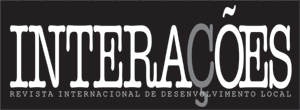Abstract:
Cooperatives are formed by associatons of people with collective work, democratic management, knowledge of the productive process, and socioeconomic relatons. The objective of this work was to know which are the main obstacles to be overcome for rural cooperatives in northern Mato Grosso to remain and develop in the market. The multiple case study was used as a research method and semi-structured questionnaires were applied using the methodological technique called snowball sampling, or “chain of informants”, in two cooperatives: the Work Cooperative of Self-Employed Professionals and the Cooperative of Mixed Agriculture and Aquaculture of the Arinos River Valley. The results indicate that the administrators lack knowledge of the cooperative’s management techniques, in additon to not knowing the requirements for opening and obtaining environmental licenses; members of the fiscal council are also unaware of financial control techniques; there is an excess of bureaucracy and lack of clarity in the rules applied by public regulatory agencies; and there is a lack of public policies that facilitate access to credit for members and cooperatives. These difficulties threaten existence, cause the main problems so that cooperatives can establish and develop themselves in the market. As a consequence, the studied cooperatives are inactive, causing losses to the cooperative members and the communities.
Keywords:
cooperativism; cooperative self-management; social inclusion
